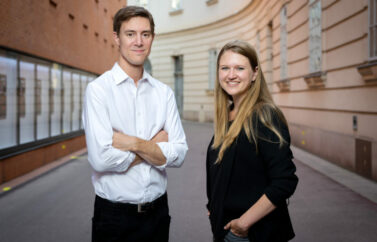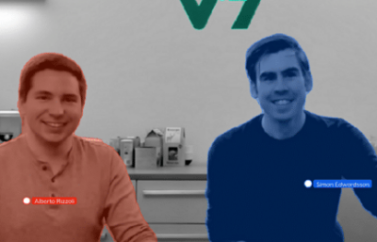Ray Studios has raised $3m to help it realise its ambitions of opening 200 studios globally in the next five years. The round featured US firms AirAngels and Gaingels, as well as Kima Ventures, Nickleby Capital and True Capital in Europe. It comes after what Ray Studios describes as a successful soft opening; its first studio launched in Paris in December.
“We’ve already seen hundreds of patients,” says CEO and cofounder David Rodriguez. “I can tell you that some stereotypes are actually true. Someone who has the name of an ex-girlfriend or ex-boyfriend is very common.”
It’s estimated that 38% of people who begin tattoo removal don’t finish the process, and Rodriguez says that 37% of people who’ve come into the Paris studio had started the tattoo removal process previously.
One of the big reasons for this, he says, is because tattoo removal traditionally takes a really long time. “The main pain point today is the duration of the process… We’re talking about something which, on average, is probably two and a half years with standard practitioners, compared to something which is less than a year in our case.”
This means that people coming to Ray Studios will have to do roughly half the sessions that they would at a conventional laser clinic (up to eight as opposed to up to 14). And at €199 per session for a medium-sized tattoo, the price lands roughly in the middle of what removal currently costs.
Ray Studios says its accelerated treatment plan is possible due to the application of “shockwave” technology, delivered by a device it has dubbed “Le Ray Spark”, and has exclusive rights to use.
The shockwave technology, he says, speeds up the recovery time following laser treatment, meaning that people can have two laser removal sessions in a day, rather than just one.
Speed is one element of the ink removal process that Ray Studios is trying to fix, but there’s a deeper issue that will be more difficult to address: the stigma around saying goodbye to a tattoo.
“There’s a big element of guilt. Why? Because a tattoo is something you did which was supposed to be for life, like getting married, right? Nobody’s getting married thinking that they’re going to be divorced afterwards,” says Rodriguez. “If you look at the figures, 23% of people who have a tattoo regret at least one of them, but only 2% of people who have a tattoo go through a tattoo removal process today.”
Ray Studios sees this discrepancy as a big market opportunity, and is trying to remove the shame of going to get a tattoo removed by creating a welcoming environment in its studios, staffed by non-judgmental and “tattoo friendly” professionals.
The company is also trying to improve the experience by providing entertainment, giving people Airpods to listen to podcasts, or the option to watch Netflix shows while they’re being treated (a session typically takes around half an hour). This continues after the treatment as well, with a digital aftercare plan designed to address questions after a removal session, and keep the person engaged and coming back to finish the removal.

Source – Sifted
For more content from Faraday Partners, follow us on LinkedIn.




